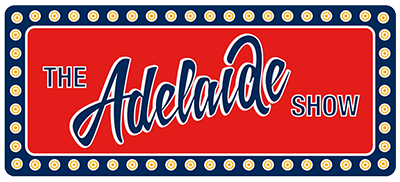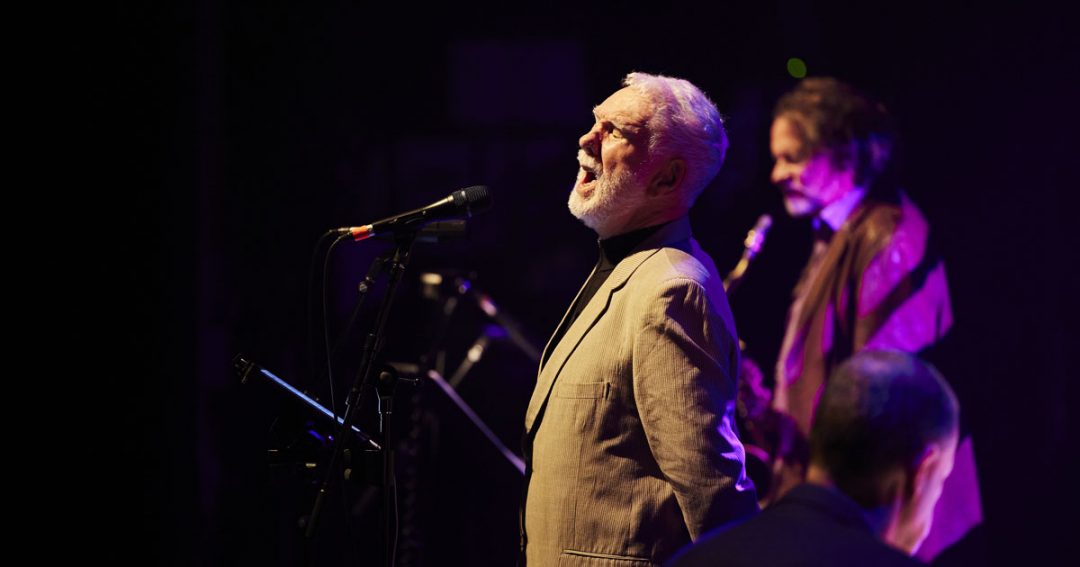Remember you’re dangerous because only when you realise you’re dangerous, will the system take notice. Systems don’t fear anything they can buy or roll over. That is how David Olney (Blind Insights with David Olney podcast) summarises anarchists of the 19th Century in his recent episode, Do you know how dangerous you are?
In that episode, David interviews activist and former senator, Scott Ludlum, who shares a quote from a former Australian Prime Minister, addressing anti-Apartheid protestors, from his book, Full Circle: Power, Hope and the Return of Nature:
We will tolerate dissent, as long as it is ineffective.
And, thus, we turn to The Art Of Protest, which opened last night with its world premiere performance as part of the Adelaide Cabaret Festival.
There are many elements to love about this show, and many that deserve comment, such that this important show can thrive and do it’s bit to prick through the congealing seal of comfort and distance that envelops many of the audience members who seek out quality entertainment.
Let’s start with two of the most enjoyable elements of the production.
Firstly, Vince Jones’ voices still has its silken, breathy, ethereal presence. Though his beard and locks are now grey, his voice has remained eternally alluring.
Secondly, Musical Director, Matt McMahon, has tamed and corralled his jazz musicians to constrain their jazzmen ways in service of the protest songs they play, albeit with occasional flights of jazzified fancy when the jazz muso genie is allowed to escape and “stretch its legs”.
However, there are some areas demanding attention that could help this show break the chains of smooth, successful jazz heritage and truly ignite heart and passion and despair.
MC and writer, Brian Nankervis, needs to be thanked for his service of writing the show but given the night off. His gift is the threading of narrative but his persona of the flamboyant, darling narrator, strikes a patronising chord, and renders the storytelling moments as more akin to pious platitudes than earnest documentation of struggle.
And this leads to another burden carried by the audience. It is a weighty task to apply suspension of disbelief, when a voice as smooth and stylish as Jones’ is singing songs typically powered by visceral outpouring of pain, despair, and anger.
To his credit, Jones does manage to get us there, most of the time, although there’s something about John Schumann’s voice and accent that is so entwined into I Was Only 19, that the suspension of disbelief became paper thin and we were reminded that this show is called The ART Of Protest; art, artifice, display, a tour through a history of curiosities.
Interestingly, Jones’ banter after the Redgum song about Vietnam, in which he pondered aloud about what it would have been like if he were conscripted and returned as a Vet to join a bikie gang and make meth in a hotel room, caused quite a shocked pause in the audience. He moved on quickly but at interval, that thought experiment did occupy the conversation in many circles.
There are many strong elements to this show, especially in the second act and especially when Vince and the band carry the narrative between songs.
In particular, three songs redeem everything and start to earn forgiveness for the lack of female participation in a show about the struggles of groups to gain full participation in society.
Jones’ rendition of Kev Carmody’s, Thou Shall Not Steal, was a poignant highlight that tied together the swirling array of contradictions and questions raised by the production up to that point. Likewise, a second anthem from an Aboriginal singer/songwriter, Archie Roach, was also laden with pathos and rebuke. Took The Children Away, was delivered in a way that was ironically sublime; such art for such a sad and tragic story. This part of the show is the sign of hope that there is more to be mined here, more to be explored, and one can only hope that the team behind this production can take stock and prepare to revise the program to scorch the sedately-manicured landscapes of festival audiences.
As much as one avoids giving away the ending to a show, Jones’ performance of Pink’s Dear Mr. President, was a mercurial choice and one that rose to the promise of speaking truth to power.
Perhaps, as this show grows and is reframed, Pink’s questions could provide a compass for future development.
How do you sleep while the rest of us cry?
How do you dream when a mother has no chance to say goodbye?
How do you walk with your head held high?
Can you even look me in the eye?
The Art Of Protest, Adelaide Caberet Festival, until June 20, 2021

